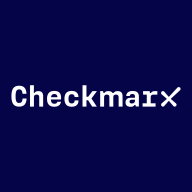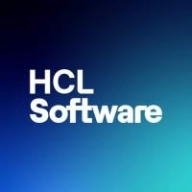

HCL AppScan and Checkmarx One are both competitors in the security vulnerability detection software market. Checkmarx One appears to have the upper hand due to its broad language support and effective remediation recommendations.
Features: AppScan is notable for detecting reflected XSS vulnerabilities and having a low false-positive rate. It integrates well throughout various SDLC phases, offering dynamic scans with quick functionality. Checkmarx One supports a wide range of languages and scans non-compiled code, with effective recommendations that enhance developers' secure coding skills. It features comprehensive incremental scanning across multiple languages and frameworks.
Room for Improvement: AppScan users suggest improving mobile application functionality, false positive management, and CI/CD pipeline integration, with a need for better technical support and language coverage. Checkmarx One could improve real-time guidance, speed up SAST scanning, and reduce its false-positive rate, while enhancing API security and correlation engine transparency. Both products should enhance container support and understanding file references.
Ease of Deployment and Customer Service: AppScan offers on-premises support and hybrid cloud environments. However, users are dissatisfied with its technical support since it moved from IBM. Checkmarx One provides broad deployment capabilities and is praised for its responsive technical support, easy transition, and fast setup process. AppScan users cite delays and less satisfactory customer service.
Pricing and ROI: AppScan is viewed as expensive, yet clients appreciate its comprehensive services and lowered vulnerabilities despite currency challenges outside Brazil. Checkmarx One, while also costly, offers a competitive return with tailored pricing models and module-based licensing. Special discounts for enterprise agreements simplify costs. Both solutions reduce vulnerabilities and deliver substantial ROI.
Overall, between the fast scanning, automation, automatic reporting, and easy detection, it has reduced manual effort enough that we did not need an extra reviewer, even as our codebase or team size grew.
Based on my interactions with the clients, I can tell that there is a return on investment because if something is not profitable and it's not helping to save costs or vulnerabilities, clients wouldn't come back to renew their license year after year.
If you raise a support case with Checkmarx, it is handled smoothly.
The customer support team is amazing and they provide on-phone call, email support, and on-website support.
I have relied on Checkmarx One customer support hundreds of times for several things, and Checkmarx One support is very proactive and very responsive.
Veracode provides excellent assistance and regularly scheduled calls to address customer concerns and updates.
There is still room for improvement when it comes to the speed of response.
Approximately four billion lines of code are being scanned monthly.
Since it is cloud-based, the infrastructure and PaaS, IaaS, and SaaS are taken care of by the cloud marketplace.
Checkmarx One's scalability has changed my organization because the strong collaboration between the development and security team helps us to do things much faster.
I would rate the stability of this solution a nine on a scale of 1 to 10 where one is low stability and 10 is high.
Checkmarx One is often down when the cloud provider experiences issues.
Since we've been using HCL AppScan for about three months, we really have not encountered a false positive.
Integration into the IDE being used would be beneficial so that code does not need to be uploaded to the website and an IDE-friendly report could be generated.
It could suggest how the code base is written and automatically populate the source code with three different solution options to choose from.
If you can improve the speed optimization, it takes around 30 to 40 minutes for checking a build. If you can make it within five minutes or 10 minutes, that would be great.
If I'm scanning a web application, it shows me the various components being used. It tells me whether I have Java libraries, .NET frameworks, or other log management libraries such as Log4j, and what versions of those specific components are present.
For a small team under 50 developers, normal expenses come under 30 to 60K.
Due to the number of years I've implemented Checkmarx One, there are rebates and discounts from the OEM which makes it a lot more profitable.
The pricing should be reasonable, matching what we are paying for.
Companies often choose based on budget constraints, with Veracode being on the higher end cost-wise.
Since replacing the previous tool, SAST and SCA scans are conducted in a couple of minutes instead of hours or days.
The best features Checkmarx One offers, over the past years, include broad language and technical support that Checkmarx provides, covering most languages.
Checkmarx One has positively impacted our organization as we tend to find vulnerabilities very early in the development cycle.
AppScan's most valuable features include its ability to identify vulnerabilities accurately, provide detailed remediation steps, and the newly introduced AI-powered features that enhance its functionality further.
I have utilized its interactive application security testing, as well as both static application security testing, dynamic application security testing, and IAST.
| Product | Market Share (%) |
|---|---|
| Checkmarx One | 9.9% |
| HCL AppScan | 2.2% |
| Other | 87.9% |


| Company Size | Count |
|---|---|
| Small Business | 32 |
| Midsize Enterprise | 9 |
| Large Enterprise | 46 |
| Company Size | Count |
|---|---|
| Small Business | 14 |
| Midsize Enterprise | 6 |
| Large Enterprise | 31 |
Checkmarx One is an enterprise cloud-native application security platform focused on providing cross-tool, correlated results to help AppSec and developer teams prioritize where to focus time and resources.
Checkmarx One offers comprehensive application scanning across the SDLC:
Checkmarx One provides everything you need to secure application development from the first line of code through deployment and runtime in the cloud. With an ever-evolving set of AppSec engines, correlation and prioritization features, and AI capabilities, Checkmarx One helps consolidate expanding lists of AppSec tools and make better sense of results. Its capabilities are designed to provide an improved developer experience to build trust with development teams and ensure the success of your AppSec program investment.
IBM Security AppScan enhances web application security and mobile application security, improves application security program management and strengthens regulatory compliance. By scanning your web and mobile applications prior to deployment, AppScan enables you to identify security vulnerabilities and generate reports and fix recommendations.
We monitor all Application Security Tools reviews to prevent fraudulent reviews and keep review quality high. We do not post reviews by company employees or direct competitors. We validate each review for authenticity via cross-reference with LinkedIn, and personal follow-up with the reviewer when necessary.